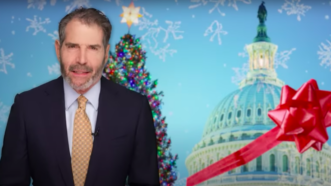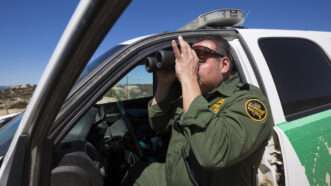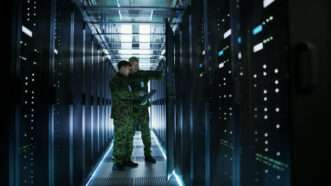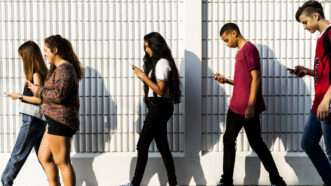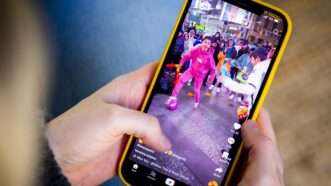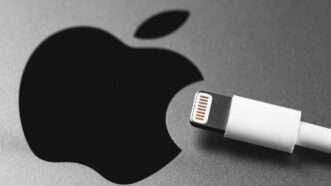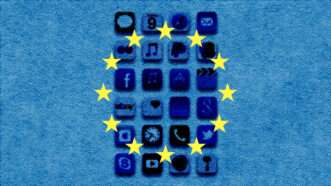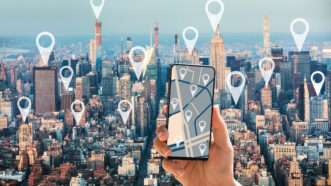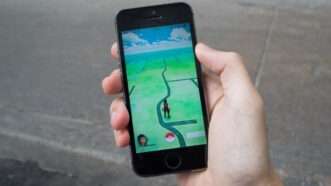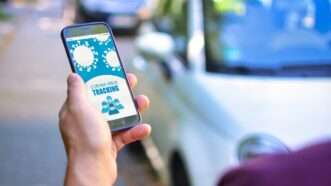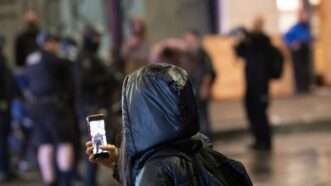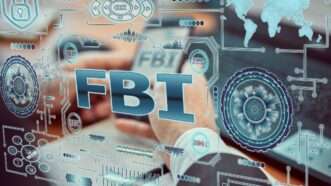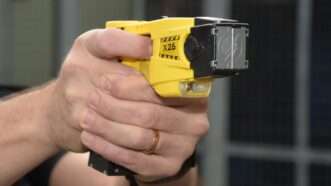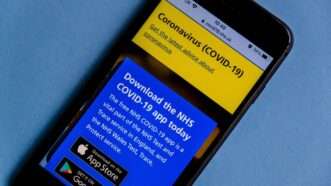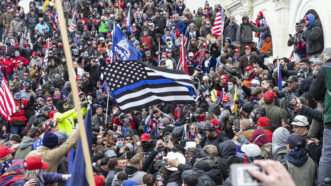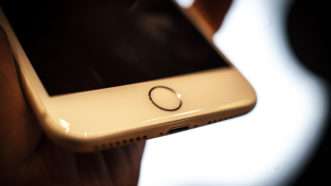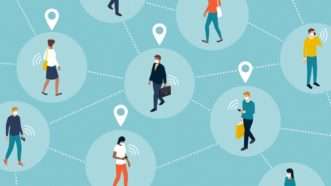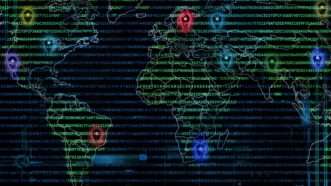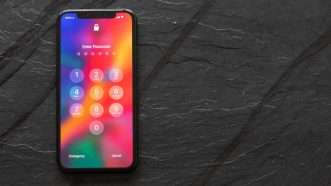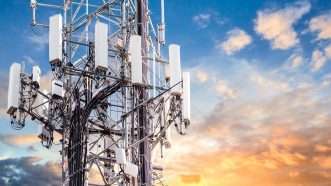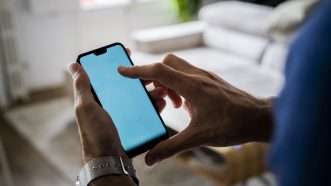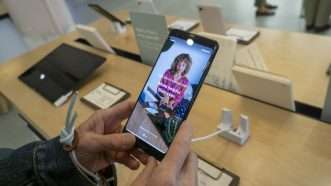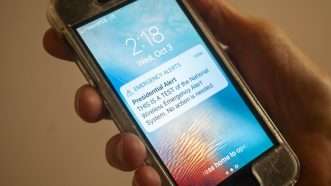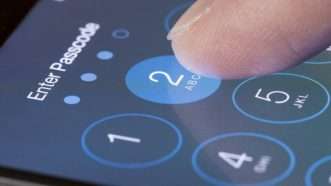Cellphones
Economic Freedom Is Declining in the U.S.
We once ranked No. 4 in the world, according to the Heritage Foundation. Now we're 25th.
Feds May Need Warrants To Search Cell Phones at the Border After All
Snooping through emails, video, and photos isn’t the same as stumbling on containers full of cocaine.
Intelligence Services Evade 4th Amendment by Paying for Your Data
The Office of the Director of National Intelligence warned that the practice threatens civil liberties, risks "mission creep," and could increase intelligence agencies' power.
California School District Sues Instagram, Snapchat, and TikTok for Creating 'Youth Mental Health Crisis'
The lawsuit blames the companies for stoking "anxiety, depression, thoughts of self-harm, and suicidal ideation."
Federal Agencies Are Still Using Our Phones as Tracking Beacons
Our mobile devices constantly snitch on our whereabouts.
TikTok Is Too Popular To Ban
Plus: Police sue Afroman for using footage from raid, California bill could ban popular junk foods, and more...
Apple Announces Stronger Data Encryption, to the Dismay of FBI Snoops
Photos and information you store on iCloud will be safer from hackers, spies, and the government.
You Can Record Video of Police in Action. But Can You Livestream That Video?
Plus: Court rejects Biden plea on student loan plan, Ohio cops don't understand the First Amendment, and more...
Ninth Circuit Refuses to Quash Jan. 6 Committee Subpoena for Kelli Ward's Cell Phone Records
A Ninth Circut panel split 2-1 over whether First Amendment concerns should prevent congressional investigatos from obtaining cell records for Arizona's Republican Party Chair.
Homeland Security Is Buying Its Way Around the Fourth Amendment
Plus: The Respect for Marriage Act, the Farm Workforce Modernization Act, and more...
Why Is the E.U. Telling Apple Which Chargers It Can Use?
If Europe really cared about e-waste it would stop mandating inefficient products.
Study: Europe's Aggressive Privacy Regulations Are Killing App Innovation
Consumers lose out when compliance costs prevent services from ever entering the market.
'Geofence Warrant' for All Cell Location Data From Area Near Robbery Is Ruled Unconstitutional
Plus: New rules on sex discrimination in education, economists warn of housing market exuberance, and more...
Secret Documents Show Which Message Apps Are the Most FBI-Proof
WhatsApp and iMessage are not as private as you might think.
Your Cell Phone Is Spying on You
An FBI document reminds us: Your cell phone provider knows where you've been—and will tell the feds.
Top Cops Pick the Midst of an International Spying Scandal To Demand Encryption Curbs
Regulating privacy protections would put the public at greater risk than criminals.
Cops Say Encryption Hinders Investigations. These Documents Say Otherwise.
Law enforcers have plenty of tools; they just want to paw through our data without effort or expense.
Lawmakers Look To Stop the Feds From Secretly Buying Your Private Data
A 2018 Supreme Court decision was supposed to protect your location data from federal snooping. That’s not what happened.
So Long as You Carry a Cellphone, the Government Can Track You
A phone in your pocket may as well be a GPS beacon strapped to your ankle.
42 People Now Face Federal Charges for the Capitol Riot
Plus: Happy birthday to Wikipedia, Airbnb's pandemic rebound, and more...
COVID-19 Is No Excuse for Suspicionless Searches of Electronic Devices at the Border
The coronavirus is not in your phone. Why should it be used to justify border searches?
Judge to FBI: You Should've Gotten a Warrant Before Turning On That Phone
Plus: Virginia decriminalizes marijuana, it's not Trump's call whether we close the country again, and more…
We Can Track COVID-19's Spread Without Violating Privacy
The coronavirus is no excuse to intrude on people's lives unnecessarily. Tech provides decentralized systems for contact tracing.
No, 5G Is Not Spreading Coronavirus. That Doesn't Even Make Sense.
These theories are dumb. Destroying 5G infrastructure is not going to prevent the spread of COVID-19.
Before You Use Our GPS Travel Data To Formulate Coronavirus Policy, Make Sure You Understand the Data
Confusing travel distance with actual human mingling is no way to create smart policy.
Where Have You Been? Your Cellphone Knows and Is Willing to Tell
Your cellphone is tracking your movements and, despite legal protections, federal, state, and local officials are finding new and disturbing ways to use that information.
The FBI Wants Access to a Mass Shooter's iPhone. Will They Demand a Back Door?
A deadly shooting on a Naval base in Florida may lead to a new battle against encryption.
Vermont Bill Criminalizing Cell Phone Use for Anyone Under 21 Is a Brilliant Troll
The proposal is parodying, not endorsing, the nanny state.
Did You Download an App that Connects to Your Rifle Scope? If So, the Justice Department Wants to Know Who You Are.
Feds go fishing for private data in order to track down illegal exporters.
Another Federal Court Allows Warrantless Cellphone Searches at U.S. Border
It’s time for SCOTUS to revisit the "border search exception" to the Fourth Amendment.
If You're Near the Scene of a Crime, Authorities Can Demand That Google Hand Over Your Data
Quiet fishing expeditions are being used to sort through potential suspects.
Nationwide 'Presidential Alert' Texts: Not the Best Idea
Most of us got a "presidential alert" text today. Is that something we really want?
New Zealand Law Is an Affront to Travelers' Privacy, but Things Aren't Much Better Here
In New Zealand, customs officials can now demand that travelers unlock their electronic devices.


